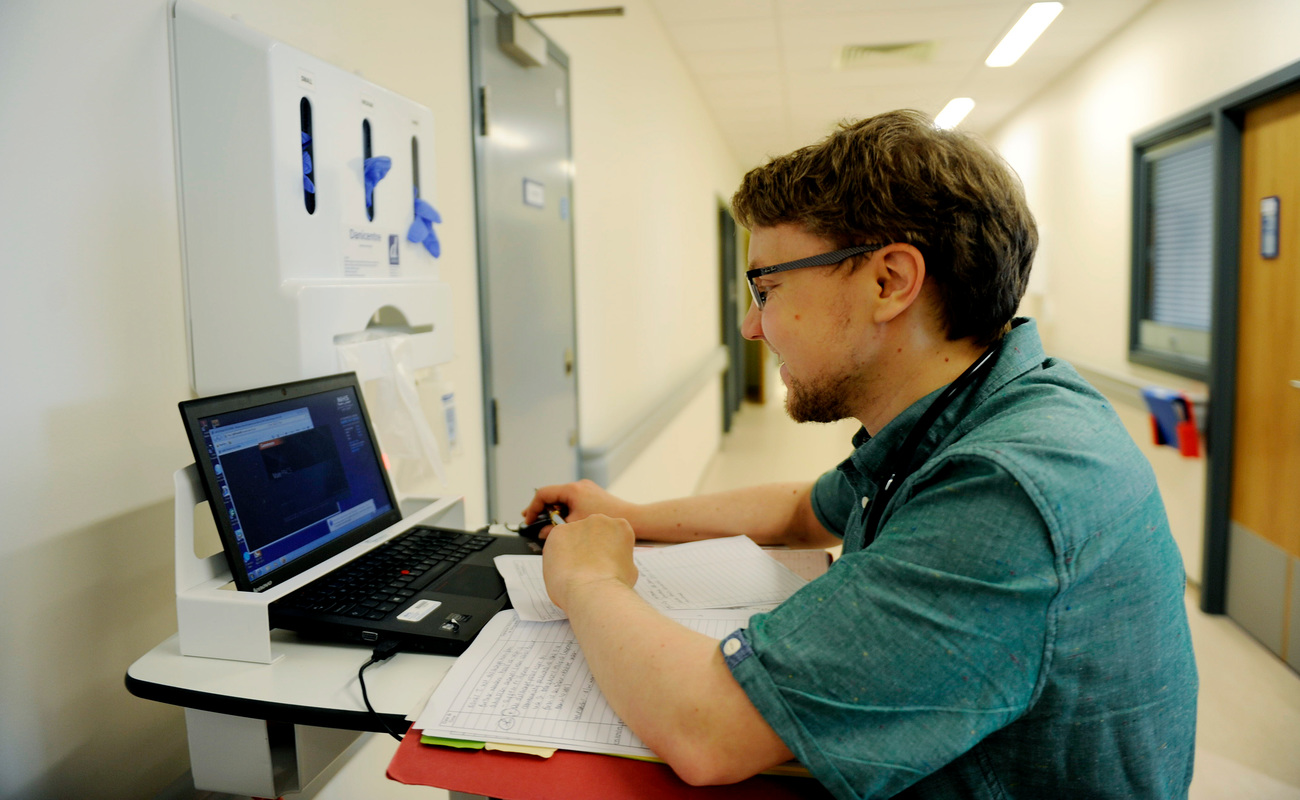Previous
Anaesthesia associate
To become a physician associate, you'll need a postgraduate diploma or a master's degree in Physician Associate Studies.
Physician associates (PAs) are medically trained, generalist healthcare professionals who work with doctors in multidisciplinary teams to provide medical care. PAs are dependent practitioners working with a dedicated supervisor but can also work independently on specific tasks.

To become a physician associate, you will need a good standard of education. Useful subjects include:
Speak to your guidance teacher or careers adviser about subjects offered at your school.

You may find it helpful to get some healthcare experience by doing a work placement or volunteering. You’ll get training, increase your knowledge, and learn new skills. This could help you when applying to university, college or a new job with NHSScotland.
You'll need a postgraduate diploma or a master's degree in Physician Associate Studies to become a physician associate in the NHS. Entry requirements include an undergraduate degree in a bioscience-related subject. If you're a registered healthcare professional, such as an AHP, nurse, or midwife you're also eligible to apply. After graduation, you must sit a national exam to become a working physician associate.
Physician associate training usually lasts 2 years and involves many aspects of an undergraduate medical degree. The training provides generalist medical training with a little focus on more specialised disciplines, such as mental health, surgery and paediatrics.
You will undertake 1,600 hours of clinical training in a range of settings, including 350 hours in general hospital medicine. You'll also spend at least 90 hours in other settings, including mental health, surgery, and paediatrics.
In Scotland, the University of Aberdeen offers an MSc in Physician Associate Studies. You will need a minimum of a 2:1 honours degree in a science or health-related subject to be accepted onto the course.
Find out more about the MSc in Physician Associate Studies.
Other universities across the UK offer physician associate postgraduate courses. You'll find an up-to-date list of universities currently accepting applications on the Faculty of Physician Associates website.
As a physician associate, you’ll work within clearly defined boundaries under the supervision of a dedicated supervisor. There will be specific tasks that you can do independently. You could also provide cover so trainee doctors and surgeons can attend training, clinics, or theatre. Most physician associates work in general practice, acute, or emergency medicine.
Although they have very similar names, the roles of physician associate and anaesthesia associate are very different.
Your main tasks include:
Currently, physician associates are not able to:
You'll need these skills:
Physician associates work with other healthcare professionals, including:
You could work in:
All physician associates must complete 50 hours of continuing professional development (CPD) per year.
You must provide documented evidence of your CPD to remain on the Physician Associate Managed Voluntary Register (PAMVR). This register is maintained by the Faculty of Physician Associates (FPA) and allows employers to check whether an applicant or employee is a fully qualified and approved physician associate.
Once you qualify as a physician associate, you can join the Faculty of Physician Associates (FPA).
The FPA is the professional organisation for physician associates, based at the Royal College of Physicians. It offers education, training, and professional development support to both qualified and student physician associates.
If appropriate to your role, consider joining other Royal Colleges for additional learning and development opportunities. For example, PAs in general practice can access the Royal College of General Practitioners website as non-members.
Since December 2024, all newly qualified physician associates must register with the General Medical Council (GMC) prior to employment. Find out more about the registration process on the GMC website.

Discover the skills and qualifications you’ll need for each role and what the work will be like.
Explore careers
Our blog includes how-to guides, case studies, and career resources.
Discover more